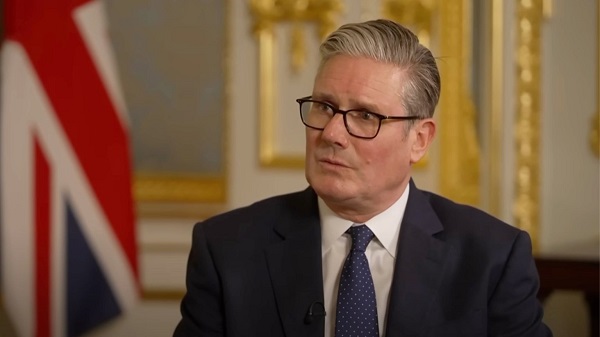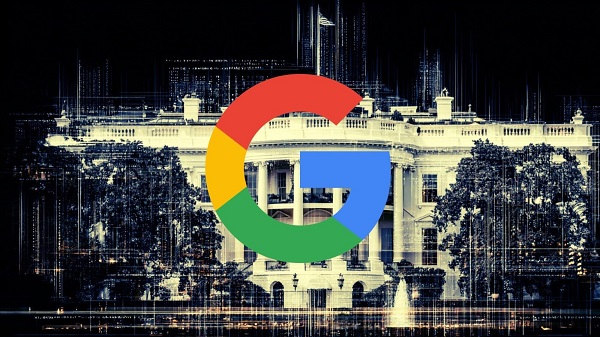Censorship Industrial Complex
Is free speech over in the UK? Government censorship reaches frightening new levels

From LifeSiteNews
By Frank Wright
Instead of changing policies which threaten the collapse of Western civilization, the liberal-global governments prefer to make public opposition to their politics a crime.
The UK’s crackdown on free speech continues, with two online platforms withdrawing over censorship concerns – whilst liberal-critical speakers are banned from entering Britain, and even arrested on arrival.
Following the introduction of laws which could see online platforms fined millions of pounds, free speech social media company Gab and video sharing platform Bitchute have withdrawn their services from UK users.
As Reclaim the Net, a UK-based online freedom campaign group, said on March 28:
“The British government has begun aggressively extending its censorship regime beyond its borders, invoking the sweeping powers granted by the Online Safety Act 2023 to demand compliance from foreign-based platforms.”
Bitchute withdrew its services from UK users “over online censorship laws,” as the Free Speech Union reported on April 10. Gab’s statement, published on its UK domain, said the company was acting to protect British users from being jailed for posting on its platform:
After receiving yet another demand from the UK’s speech police, Ofcom, Gab has made the decision to block the entire United Kingdom from accessing our website.
This latest email from Ofcom ordered us to disclose information about our users and operations. We know where this leads: compelled censorship and British citizens thrown in jail for ‘hate speech.’ We refuse to comply with this tyranny.
The UK government claims its laws support “online safety” – but as Reclaim the Net explains, “critics argue … the term … is being used as a smokescreen for state-sanctioned thought control.”
The future of information in Britain looks bleak, as one UK commentator said, promising a “TV version” of the internet – sterilized by UK government media watchdog Ofcom:
“Unless the White House really forces Britain to do it, Ofcom will not be abolished, because the mainstream parties approve of it and no party that doesn’t will be allowed anywhere near power.”
Millennial Woes concludes that there is likely a “hit list” of further online platforms to be taken down in order, beginning with video outlets Odysee and Rumble, the messenger service Telegram, then the free speech publisher Substack – and on to Elon Musk’s X.
Woes warns:
“If allowed to continue in its current mode, Ofcom will take down the platforms it wants to, then tame the others by hook or by crook. The Internet in Britain will be a homogenised, redacted farce – a pathetic ‘TV version’ of what people in more civilised countries have.”
Cambridge professor arrested
The charge of “state-sanctioned thought control” is reinforced by the arrest – on Good Friday –-of a Palestinian Christian and Cambridge University professor at London’s Heathrow Airport. The reason for Professor Makram Khoury-Machool’s detention was that he has spoken out against Israel’s war in Gaza, as reports from the UK said.
“Keir Starmer’s long and intensifying war on pro-Palestine, anti-genocide speech through the misuse of the Terrorism Act … has continued to escalate,” noted UK outlet Skwawkbox, which covers stories such as this – neglected by the mainstream press “because it doesn’t fit their agenda.”
Professor Khoury, whose speech was criminalized under anti-terror laws, had in the past co-founded an anti-extremism institute in 2016 at Cambridge University.
British left-populist George Galloway responded on X (formerly Twitter), saying the arrest of this “gentle, devout moderate academic father” suggests that the “government has declared war on its own citizens, that liberty is dead in this land, and that Britain is no longer a safe country.”
Galloway’s warning of “It can happen to you. And it will” came a day after reports that a French philosopher noted for his outspoken criticism of mass migration had been banned from entering the UK.
French anti-migration speaker banned
Renaud Camus is the author of The Great Replacement – coining a term now used to describe the liberal-global policy of the replacement of Western populations via mass immigration.
The “great replacement” is routinely “debunked” by the ruling elite as a “conspiracy theory.” As Camus once said to Britain’s Matt Goodwin, “How can it be debunked when it is evident in every street?”
He was due to speak at a “remigration conference” in England on April 26. Organized by the nationalist Homeland Party, it is dedicated to the discussion of policies similar to those now being enacted by the Trump administration.
According to the Daily Telegraph, Camus was denied entry to the UK by government order.
In an email seen by The Telegraph, the Home Office informed Mr Camus that he had been denied the electronic travel authorisation (ETA) needed to enter Britain.
‘Your presence in the UK is not considered to be conducive to the public good,’ the email read.
The Telegraph reports that Mr Camus, “who is gay and has advocated for non-violence,” supplied one convincing explanation for his treatment:
[He] told The Telegraph that ‘of all the European governments guilty’ of allowing unchecked migration, ‘the British government is one of the guiltiest’.
‘No wonder it does not want me to speak,’ Mr Camus added.
The fact the British government is banning speakers who promote policies now being enacted with widespread support in the United States has not only provoked criticism – it may derail UK/U.S. trade negotiations.
Days ago, Vice President JD Vance warned UK Prime Minister Keir Starmer that Britain will get no deal with the U.S. over tariffs if its “hate speech” laws remain in place.
“Sir Keir Starmer must embrace Donald Trump’s agenda by repealing hate speech laws in order to get a trade deal over the line, a Washington source has told The Independent.”
A “Washington source” told the UK-based Independent, “No free speech, no deal. It is as simple as that.”
Vance has been a stern critic of British and European moves towards increasing censorship and the suppression of freedom of opinion, describing it in his February Munich speech as a “threat” to democracy “from within” Western Europe – and one which is led by its liberal-globalist governments.
Vance is reportedly “obsessed by the fall of Western civilisation,” The Independent’s Washington source explained. It is clear that Vance believes that this fall is very much a threat created by the political decisions of governments like Starmer’s.
The use of “hate speech” and “anti-terrorism” laws in these cases shows how the UK state-sanctioned suppression of speech affects anyone – from the left, right, or from the Christian faith – who criticizes the policies of the government.
These are not fringe extremist views, but those held by increasing numbers of ordinary people in Britain and throughout the Western world. Instead of changing policies which threaten the collapse of Western civilization, the liberal-global governments prefer to make public opposition to their politics a crime.
In the case of the British state, its hardline stance to defend its idea of democracy from free speech is now threatening its economic future. The politics and laws celebrated as the guarantee of safety increasingly resemble a form of extremism which will not tolerate debate.
Censorship Industrial Complex
Digital ID UK: Starmer’s Expanding Surveillance State

Britain’s digital ID push isn’t about streamlining paperwork. It’s about hardwiring state power into everyday life.
|
UK Prime Minister Keir Starmer came into office promising competence and calm after years of alleged political chaos.
What has followed is a government that treats civil liberties as disposable. Under his watch, police have leaned on broad public order powers to detain people over “offensive” tweets.
Critics argue that what counts as “offensive” now changes depending on the political mood, which means ordinary citizens find themselves guessing at what might trigger a knock on the door.
This is happening while mass facial recognition cameras are being installed in public places.
The pattern is clear: expand surveillance, narrow dissent, and then assure the public it is all in the name of safety and order.
Against that backdrop, a digital ID system looks less like modernization and more like the missing piece in an expanding control grid.
Once every adult is forced to plug into a centralized identity wallet to work, rent, or access services, the state’s ability to monitor and sanction becomes unprecedented.
Starmer’s Labour government is dusting off one of its oldest obsessions: the dream of tagging every citizen like a parcel at the post office.
The latest revival comes in the form of a proposal to create mandatory digital ID cards, already nicknamed the “Brit Card,” for every working adult in the country.
The sales pitch sounds noble enough: crack down on illegal work, cut fraud, plug loopholes. The real effect would be to make ordinary life a permanent identity check.
Officials want job applications, rental agreements, and other basic transactions to be filtered through a government database, accessed through an app.
This, the people are told, will finally stop the shadow economy of dodgy employers. If that logic sounds familiar, it is because it is the same rationale Labour used for its last ID card scheme in the 2000s, a project that ended up in the political landfill in 2010 after enough voters realized what was happening.
“Digital ID is an enormous opportunity for the UK. It will make it tougher to work illegally in this country, making our borders more secure,” Starmer said in his announcement. “And it will also offer ordinary citizens countless benefits, like being able to prove your identity to access key services swiftly – rather than hunting around for an old utility bill.”
Campaigners and data rights groups are not buying the rebrand.
For Liberty’s Gracie Bradley cut straight to the point: the new version “is likely to be even more intrusive, insecure and discriminatory” than the one the country already threw out a decade ago.
That does not bode well for a government trying to convince citizens this time will be different.
Rebecca Vincent of Big Brother Watch spelled out where this all leads: “While Downing Street is scrambling to be seen as doing something about illegal immigration, we are sleepwalking into a dystopian nightmare where the entire population will be forced through myriad digital checkpoints to go about our everyday lives.”
Her warning does not require much imagination. Britain has a spotty track record on protecting sensitive data.
A poll commissioned by Big Brother Watch found that nearly two-thirds of the public already think the government cannot be trusted to protect their data. That is before any giant centralized ID system is rolled out.
Privacy advocates see this as a recipe for disaster, arguing that hackers and snooping officials alike will treat the system as a buffet of personal information.
Former Cabinet Minister David Davis, one of the longest-serving critics of ID schemes, described the risks as existential. “The systems involved are profoundly dangerous to the privacy and fundamental freedoms of the British people,” he said, noting the government has not explained how or if it would compensate citizens after the inevitable breach.
Silkie Carlo, the director of Big Brother Watch, issued a blunt forecast of where the “Brit Card” could lead.
She warned it could extend across public services, “creating a domestic mass surveillance infrastructure that will likely sprawl from citizenship to benefits, tax, health, possibly even internet data and more.”
In other words, once the pipes are laid, the water does not stop at employment checks.
Labour, of course, has been here before. The last time it rolled out ID cards, in 2009, the experiment barely survived a year before being junked by the incoming Conservative-led coalition as an “erosion of civil liberties.”
Labour is leaning heavily on polling that allegedly suggests up to 80 percent of the public backs digital right-to-work credentials.
Starmer himself recently adopted that framing. Earlier this month, he claimed digital IDs could “play an important part” in tackling black market employment.
He is pushing the case again at the Global Progress Action Summit in London, noting that “we all carry a lot more digital ID now than we did 20 years ago.”
What complicates the sales pitch is Labour’s own history of skepticism. Both Keir Starmer and Foreign Secretary Yvette Cooper previously raised concerns about ID systems and their potential for government overreach.
That past caution has not stopped the new Home Secretary, Shabana Mahmood, from becoming one of the loudest champions of the plan. She recently declared the system “essential” for enforcing migration and employment laws.
Labour-aligned think tanks are also providing cover. Labour Together released a report describing digital ID as a “new piece of civic infrastructure,” with the potential to become a routine part of life.
***
Tony Blair has reemerged as a central architect of Britain’s dystopian digital future.
Through his think tank, the Tony Blair Institute for Global Change, the former Prime Minister is pushing the nationwide digital ID system, pitching it as the backbone of a tech-enabled state.
With Keir Starmer now in office, Blair’s vision is no longer an abstract policy paper. It is edging into reality with a new host.
For Blair, digital ID is not about convenience. It is about rewriting how government functions and can be what he calls a “weapon against populism.”
He has argued that a leaner, cheaper, more automated state is possible if citizens are willing to give up parts of their privacy. “My view is that people are actually prepared to trade quite a lot,” he once said, suggesting that resistance will dissolve once faster services are dangled in front of the public.
This project is not limited to streamlining bureaucracy. His version of efficiency is a frictionless state that also monitors, verifies, and restricts in ways that would have been inconceivable before the digital era.
With Starmer’s government now developing a digital ID wallet and considering a national rollout, Blair’s agenda is closer to official policy than ever. Marketed as modernization, the plan points toward a permanent restructuring of the relationship between citizen and state, locking personal identity into a centralized system that future governments will be able to expand at will.
|
|
|
|
You read Reclaim The Net because you believe in something deeper than headlines; you believe in the enduring values of free speech, individual liberty, and the right to privacy.
Every issue we publish is part of a larger fight: preserving the principles that built this country and protecting them from erosion in the digital age.
With your help, we can do more than simply hold the line: we can push back. We can shine a light on censorship, expose growing surveillance overreach, and give a voice to those being silenced.
If you’ve found any value in our work, please consider becoming a supporter.
Your support helps us expand our reach, educate more people, and continue this work.
Please become a supporter
Thank you for your support.
|
Business
Google Admits Biden White House Pressured Content Removal, Promises to Restore Banned YouTube Accounts

Google admits bending to political pressure, but only long after the damage was already done
|
After years of denying bias, Google now concedes that it gave in to pressure from the Biden White House to remove content that did not breach its own rules.
The admission comes alongside a promise to restore access to YouTube accounts permanently removed for political speech related to COVID-19 and elections, topics where government officials had applied behind-the-scenes pressure to control the narrative.
This move follows sustained scrutiny from the House Judiciary Committee, which Reclaim The Net covered extensively, led by Chairman Jim Jordan (R-OH), who issued a subpoena and spearheaded an investigation that revealed the extent of government influence on content moderation decisions at Google.
In a letter from its legal representative, Google confirmed that it faced pressure from the federal government to suppress lawful speech.
We obtained a copy of the letter for you here.
Google revealed that it had been contacted multiple times by top federal officials regarding content on its platforms, even when that content did not break any rules.
The company stated that “Senior Biden Administration officials, including White House officials, conducted repeated and sustained outreach to Alphabet and pressed the Company regarding certain user-generated content related to the COVID-19 pandemic that did not violate its policies.”
According to the company, this outreach took place in a broader political climate that made it difficult to operate independently.
Google noted that “The political environment during the pandemic created significant pressure on platforms, including YouTube, to address content that some deemed harmful.”
While describing the situation, Google made clear its disapproval of such efforts, stating bluntly that “This pressure was – and remains – unacceptable and wrong.”
In response to this period of politicized enforcement, the company said it is now taking steps to reverse prior censorship decisions.
As part of that process, Google confirmed that “Reflecting the Company’s commitment to free expression, YouTube will provide an opportunity for all creators to rejoin the platform if the company terminated their channels for repeated violations of COVID-19 and elections integrity policies that are no longer in effect.”
The letter also clarified YouTube’s approach to content moderation, explicitly rejecting the use of outside arbiters. “YouTube does not use third-party fact checkers to determine whether content should be removed or labeled,” the company said.
Acknowledging the role of political diversity on its platform, Google stated that “YouTube values conservative voices on its platform. These creators have extensive reach and play an important role in civic discourse.”
The company concluded with a broader statement rejecting government interference in lawful online speech, saying that “The federal government should not play a role in pressuring private companies to take action on lawful speech.”
The revelations echo findings in the Murthy v. Missouri case, where lower courts found that federal agencies had taken on a role similar to an “Orwellian ‘Ministry of Truth.’” While the Supreme Court dismissed the case on procedural grounds, the core issues around government pressure on speech remain unresolved.
The investigation into Google is part of a broader probe into how tech firms handled information related to the 2020 election, COVID-19, and high-profile political topics such as Hunter Biden’s laptop. The committee’s findings show a pattern of censorship aligned with political objectives.
|
|
|
|
You read Reclaim The Net because you believe in something deeper than headlines; you believe in the enduring values of free speech, individual liberty, and the right to privacy.
Every issue we publish is part of a larger fight: preserving the principles that built this country and protecting them from erosion in the digital age.
With your help, we can do more than simply hold the line: we can push back. We can shine a light on censorship, expose growing surveillance overreach, and give a voice to those being silenced.
If you’ve found any value in our work, please consider becoming a supporter.
Your support helps us expand our reach, educate more people, and continue this work.
Please become a supporter
Thank you for your support.
|
-

 Business13 hours ago
Business13 hours agoOver $2B California Solar Plant Built To Last, Now Closing Over Inefficiency
-

 Alberta2 days ago
Alberta2 days agoFederal policies continue to block oil pipelines
-

 espionage1 day ago
espionage1 day agoCanada Under Siege: Sparking a National Dialogue on Security and Corruption
-

 Business12 hours ago
Business12 hours agoWEF has a plan to overhaul the global financial system by monetizing nature
-

 Business1 day ago
Business1 day agoGoogle Admits Biden White House Pressured Content Removal, Promises to Restore Banned YouTube Accounts
-

 Business14 hours ago
Business14 hours agoThe Leaked Conversation at the heart of the federal Gun Buyback Boondoggle
-

 Opinion13 hours ago
Opinion13 hours agoThe City of Red Deer’s financial mess – KPMG report outlines failure of council to control spending
-

 International2 days ago
International2 days agoTrump says he won’t back down on Antifa terrorism designation






